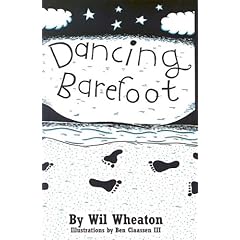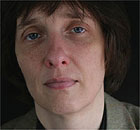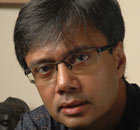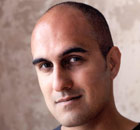This essay, by Ted Striphas, originally appeared on his The Late Age Of Print blog.
This is the first in a multi-part series called, “what the publishing industry can learn.” Each post will focus on a specific — and specifically instructional — facet of contemporary book culture. The goal is to help those of us invested in books to imagine how the publishing industry might connect better with readers and thus remain relevant (and these days, solvent!) in an increasingly dense media landscape.
The series is prompted in part by Gideon Lewis-Kraus’ recent essay in Harpers, “The Last Book Party” (March 2009), which intimates that the 2008 Frankfurt Book Fair will be the industry’s last happy occasion — at least for the foreseeable future.
You can expect to see more installments of “what the publishing industry can learn” appearing here over the next few weeks. Check back for more.
I. What can the publishing industry learn from The Da Vinci Code?
With tens-of-millions of copies sold, to say that Dan Brown’s The Da Vinci Code is a bestseller’s bestseller would be an understatement. How can we account for its astronomical success? A gripping story full of mystery, code breaking, and religious heresies definitely is a good place to start. I’d also suspect that there’s a Doubleday marketing agent out there somewhere who’s convinced that she or he made all the right moves in getting the book into exactly the right hands at exactly the right moment, thereby creating this runaway literary blockbuster. A major motion picture directed by Ron Howard, starring Tom Hanks, can’t hurt, either.
I don’t dispute the accuracy of story, advertising, or spin-offs in explaining The Da Vinci Code’s astronomical book sales. But as Malcolm Gladwell’s The Tipping Point shows, the success of nearly anything can result from banal — often overlooked — circumstances. I want to focus on one such circumstance in thinking about what publishing might learn from The Da Vinci Code: chapter length.
Several years ago my sister asked me to buy her a copy of The Da Vinci Code for Christmas. I obliged, despite her fears that I would judge her negatively for indulging in literary pap. (I read popular literature all the time, I assured her.) She was especially concerned that I would scoff at the length of the chapters, many of which are just a handful of pages each. “The chapters are so short, they’re almost like scenes out of a movie,” I recall my sister saying, embarrassedly — this a year or two before the film adaptation was released.
She was on to something. The chapters were remarkably brief, and in their brevity, I later realized, lie important lessons about The Da Vinci Code’s success. My sister described the chapters as “cinematic.” Perhaps that’s true, but having watched her read the book over the next couple of days, I couldn’t help but think that they were even more televisual in nature. She could sit down and read for five or ten minutes at a clip, non-commitally, and even manage to finish a chapter or two in the process. She could read distractedly, as the text didn’t demand that she sustain her attention for very long. What’s remarkable is that the book, despite being more than 400 pages, hardly behaves like a substantial (as in long) work of fiction.
The Da Vinci Code isn’t the first book to be composed or read in this way. Anyone who’s ever consumed or even simply thumbed through Marshall McLuhan’s Gutenberg Galaxy (1962) or Understanding Media (1964) will recognize The Da Vinci Code’s distant kin. The former are academic screeds composed of punchy “snack sized” chapters. McLuhan understood better, and earlier, than almost anyone how to communicate effectively using the printed word in a time not only of ascendant electronic media but indeed of myriad other everyday distractions.
In saying that The Da Vinci Code’s success is attributable in part to the brevity of its chapters, I should be clear that I am absolutely not suggesting that people’s attention spans are waning, or that we have lost our ability to process long, slowly developing arguments or narratives. Nevertheless, ours unquestionably is an age of myriad distractions — electronic or otherwise (a crying baby, a loud truck rolling by, the incessant drone of leaf blowers) — that make it more difficult to spend protracted periods of time with protracted amounts of text.
My suggestion that books might be better served with smaller chapters, à la The Da Vinci Code, thus is a pragmatic rather than a moral one. Essentially I’m asking book publishers and authors to attune their sensitivities better to the fine-grain of everyday life, where reading happens, and to refashion their books accordingly.
More to come….
Read parts two and three of this essay series on The Late Age Of Print blog.
Ted Striphas is Assistant Professor and Director of Film & Media Studies in the Department of Communication & Culture at Indiana University, and the author of The Late Age of Print.

 I was talking about my book
I was talking about my book 



